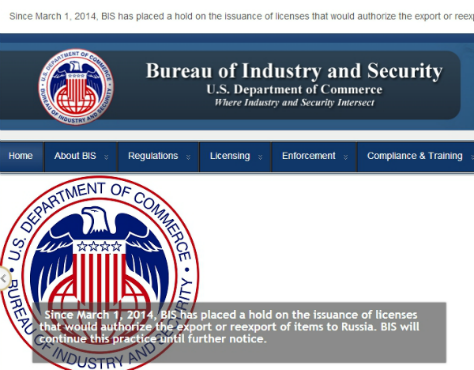![Philip He Family Photo via http://news.yahoo.com/special-report-china-39-weapon-snatchers-penetrating-u-150652962.html [Fair Use] Philip He Family Photo via http://news.yahoo.com/special-report-china-39-weapon-snatchers-penetrating-u-150652962.html [Fair Use]](https://www.exportlawblog.com/images/he.jpg)
ABOVE: Philip Chaohui He
Last February, this blog reported on the indictment of Philip Chaohui He, who had been indicted on charges that he attempted to export to China $549,654 worth of ITAR-controlled, radiation hardened, space qualified memory chips to China without the required export license. On December 19, Mr. He, who had entered a guilty plea to the charges, was sentenced to three years in prison.
Since our original post, several interesting details have emerged with respect to Mr. He and his attempted export to China. The first relates to the potential involvement of the Chinese government in these exports. The San Francisco Chronicle tells an interesting story as to the ship on which He tried to load the memory chips. The ship was owned by ZPMC, a Chinese state-owned enterprise that was fabricating steel towers for the San Francisco Bay Bridge renovation, a project on which Mr. He was working as an engineer. Mr. He told Jim Yang an employee of ZPMC that one of their employees had left behind in San Francisco a package of personal effects and that he would like to return the package to the employee via a ZPMC ship that was soon departing from the port in Long Beach, California.
Yang said he wondered why He would want to drive seven hours to make the delivery, but he had replied, “Fine.”
“So he drove down by himself with a couple of boxes in his vehicle,” Yang said. “And we had dinner together because he was doing us a favor.”
The next morning, Yang said, He followed him in his car to the Port of Long Beach, where they entered the ZPMC dock site using Yang’s security badge.
Mr. He was immediately arrested on the dock. Yang denies that he knew what was in the package or that ZPMC was in cahoots with He. The red flag here is not just the one flying over Beijing. Why was He driving seven hours with a package of personal effects as a favor to a ZPMC employee he met on the Bay Bridge Project? He couldn’t figure out any other easier way to return the box? Then Yang uses his badge and let’s He on the dock with a package of completely unknown contents that could have been a dirty bomb for all Yang knew. Uh huh. Sure. And if you believe that I’ve got a Bay Bridge to sell you.
The second detail relates to the participation of the memory chip manufacturer, Aeroflex, in the apprehension of Mr. He. We speculated in the original post that He’s large order of stuff he had little demonstrated need for set off alarm bells in Aeroflex and that they set the law on him. This lengthy investigative report on the case by Reuters confirms that this was the case.
People and companies who buy these kinds of rad-chips are usually well-established, repeat customers – more multinational corporation than mom & pop. Aeroflex salesmen had never heard of “Philip Hope” or his company, “Sierra Electronic Instruments.”
Most suspicious of all, just days after placing the order, Hope sent Aeroflex a certified check for the full amount, $549,654. That was rare. Buyers were expected to make a deposit, but nobody paid up front.
Of course, being alert to red flags and lending a helping hand to the government did not result in any expression of gratitude from the Government which, not long after, fined Aeroflex $8 million for export violations that Aeroflex voluntarily disclosed to the Government. My guess is that in the future Aeroflex will simply decline to make sales like this one that are suspicious and won’t feel particularly motivated to pick up the phone and tell the feds about it.


 Posted by
Posted by  Category:
Category: 

![Aerial View of NASA Ames Research Center https://www.facebook.com/photo.php?fbid=10151655073516394&set=pb.338122981393.-2207520000.1394054211.&type=3&theater [Public Domain] Aerial View of NASA Ames Research Center https://www.facebook.com/photo.php?fbid=10151655073516394&set=pb.338122981393.-2207520000.1394054211.&type=3&theater [Public Domain]](https://www.exportlawblog.com/images/nasa_ames.jpg) The NASA Office of Inspector General completed its investigation of unlicensed releases of ITAR-controlled technology to foreign nationals working at the Ames Research Center and — surprise! surprise! — it found no evidence of any violations of law. According to a
The NASA Office of Inspector General completed its investigation of unlicensed releases of ITAR-controlled technology to foreign nationals working at the Ames Research Center and — surprise! surprise! — it found no evidence of any violations of law. According to a ![U.S. Court of Appeals for the Fourth Circuit via http://www.gsa.gov/graphics/staffoffices/PowellCourthouse.jpg [Public Domain] U.S. Court of Appeals for the Fourth Circuit via http://www.gsa.gov/graphics/staffoffices/PowellCourthouse.jpg [Public Domain]](https://www.exportlawblog.com/images/Fourth Circuit.jpg)
![Chinese Army training with computers [Fair Use] Chinese Army training with computers [Fair Use]](https://www.exportlawblog.com/images/Chinese Hackers.jpg) Back in December, IBM issued a
Back in December, IBM issued a ![Philip He Family Photo via http://news.yahoo.com/special-report-china-39-weapon-snatchers-penetrating-u-150652962.html [Fair Use] Philip He Family Photo via http://news.yahoo.com/special-report-china-39-weapon-snatchers-penetrating-u-150652962.html [Fair Use]](https://www.exportlawblog.com/images/he.jpg)


